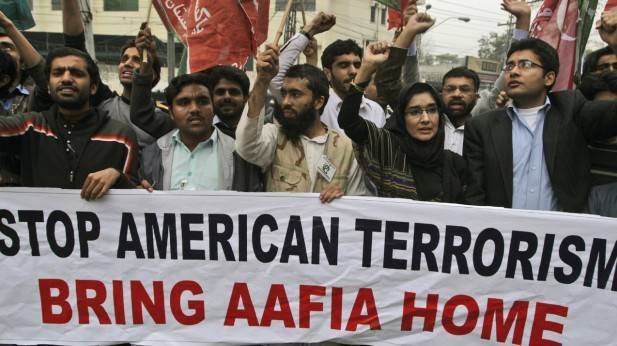“Breaking news!”
“Did you hear? Did you hear?”
“What, what happened? Tell me now!”
“Switch on the TV! Maybe there’s something on Facebook/Twitter?”
“I just got a message saying that…”
Ad infinitum.
Never a dull day in the Pakistani news cycle, as they say. Sometimes it’s squabbling politicians or it’s some new U-Turn by a popular ‘youth’-oriented party in Pakistan; sometimes it’s ‘revelations’; sometimes it’s a celebrity who has turned into a jihadi. Sometimes it’s something more sinister where blood has been spilled, a natural disaster or sometimes it may be a man-made calamity.
In any case, however, the twenty-four-hour news cycle remains much like the Greek myth of Tantalus. Tantalus lived in the deepest portions of the Underworld (kingdom of the dead) where he was punished by the gods to be surrounded by a lake of fruits – but was unable to quench his thirst or hunger. Hence, the verb ‘to tantalize’.
Our media channels and analysts seem to be cursed with a similar affliction. They constantly need ‘more’, they are constantly waiting for ‘breaking news’ or ‘sensations’ that can bring the audiences’ undivided attention towards them.
But it is not just them, I see. It is not just the media that loves the frenzy, the hype, the drama, the frequent shake-ups and the constant vicissitudes. We, as a nation, love a reason to go nuts over anything and everything. Maybe it is because we are otherwise starved for entertainment or because our lives are filled with a lot of stress anyways, so we are always welcoming a distraction from our own frustrations. Whatever the case may be, we are a hysterical nation, an emotional people.
The hysteria that immediately captures us as a nation is a dangerous indicator of our collective psyche. A nation that is easily excited or emotional is at the mercy of any kind of manipulation. Anyone can take a strong, emotive message and twist our take on things; emotional people tend to downplay the rationality of an argument and their opponents can easily have them eating out of their hands, if the opponents are smart enough.
Sometimes the same hysteria becomes useful to alter messages. It is little wonder that Pakistanis were smoothly duped by the manipulation of Islamic ideology by General Zia (the long-term effects of which are still alive and well in many areas of Pakistani society); people were able to completely transform their lives and their perspectives because he used emotionality in the name of religion and changed the course of the nation.
Political sloganeering and religious hatemongering follow similar steps: give the people something to be emotional about. Give them a chant; give them a shout; give them everything but logic and they will eat it up. It is so simple, so easy to do that with a nation that believes in an all-or-none principle. Death to the disbeliever! Fake democracy!
Sometimes the same hysteria creates a chaotic situation almost immediately. Take the petrol crises for example. The government’s failure in providing petroleum to Punjab created mass hysteria in Karachi and even though the city seemed capable enough to provide for petroleum, the social media sites, television channels and word of mouth was soon able to catapult a frightened, insecure people into a state of mass hysteria. Analysts flogged the government (and very rightly so) for not being able to handle the fuel crises but scoffed at the idea of a hysterical people, freaking out at the thought of petrol not being available in a city like Karachi and quickly began hoarding, which did end up contributing to the crisis even more.
Whether it is a pro-PTI rally or protesting against Charlie Hebdo, Pakistanis love to dominate the airwaves and the drawing room discussions by proving to the world just how much we care about the world. This is our way of proving to everyone, including ourselves, that our self-righteousness can be transformed into viable actions.
While that sentiment is admirable, there is a nagging discomfort that these events and behaviours leave you with. That discomfort is also known as logic and common sense.
Is it just us? Is it a case of lemmings or a case of herd mentality? Is it the tendency to conform in a collectivist society? Maybe all of those things? A long and detailed research may be able to shed more light on the kind of psychology Pakistanis have had evolving in the past few decades, at least the ones where we were able to identify ourselves as Pakistanis. But one thing is for sure, whether it is a small accident on the road, a TV anchor reporting on television from a public street or the case of the country being at war – the one thing that comes easiest to us all is mass hysteria.






